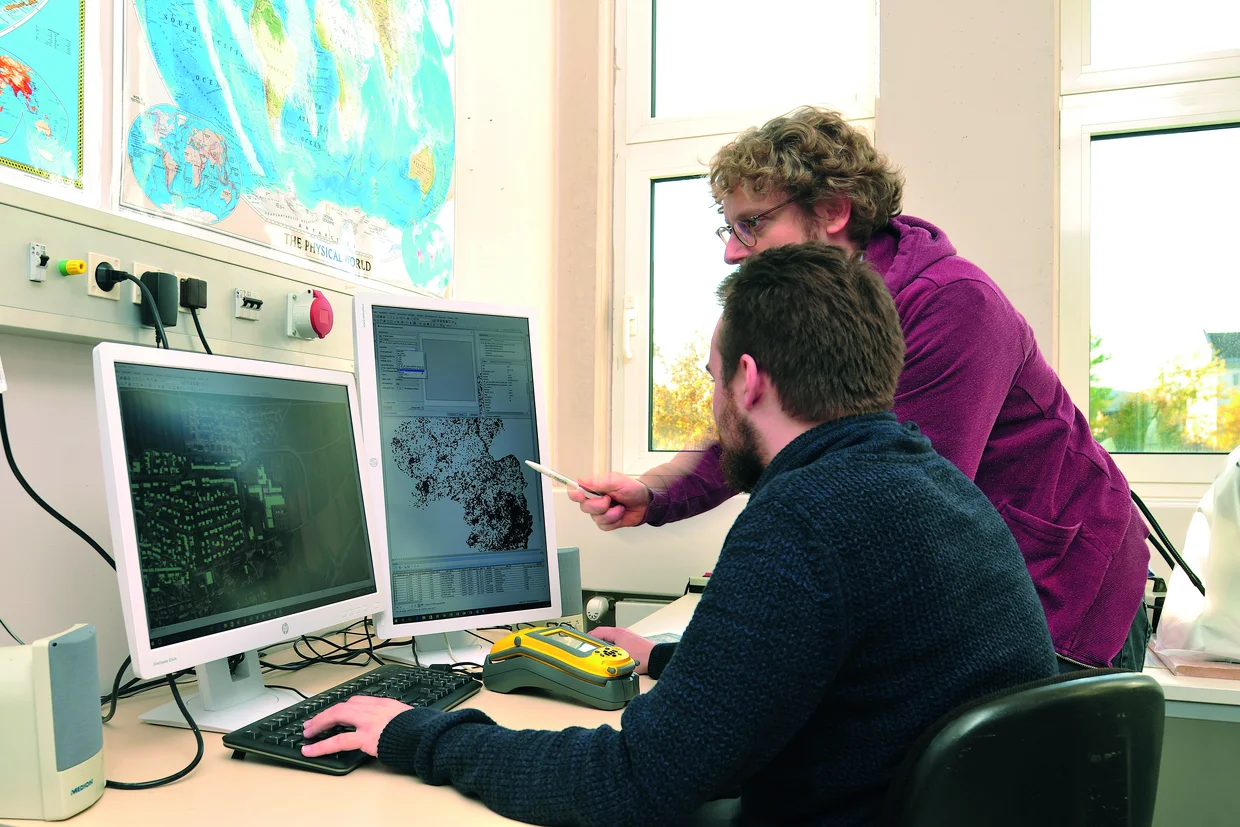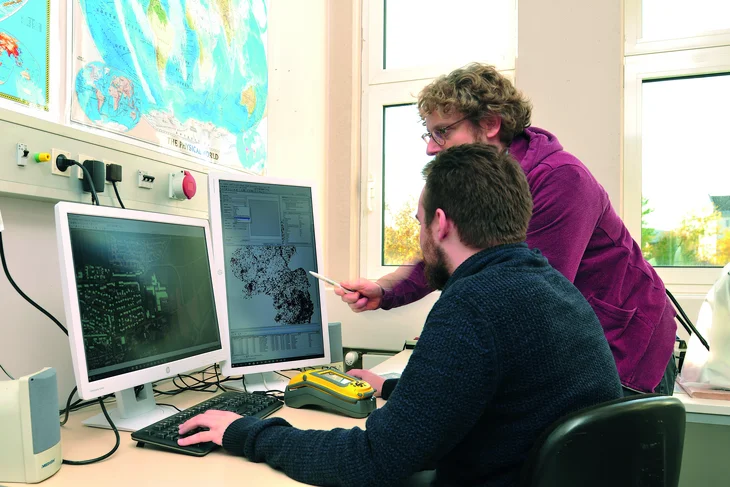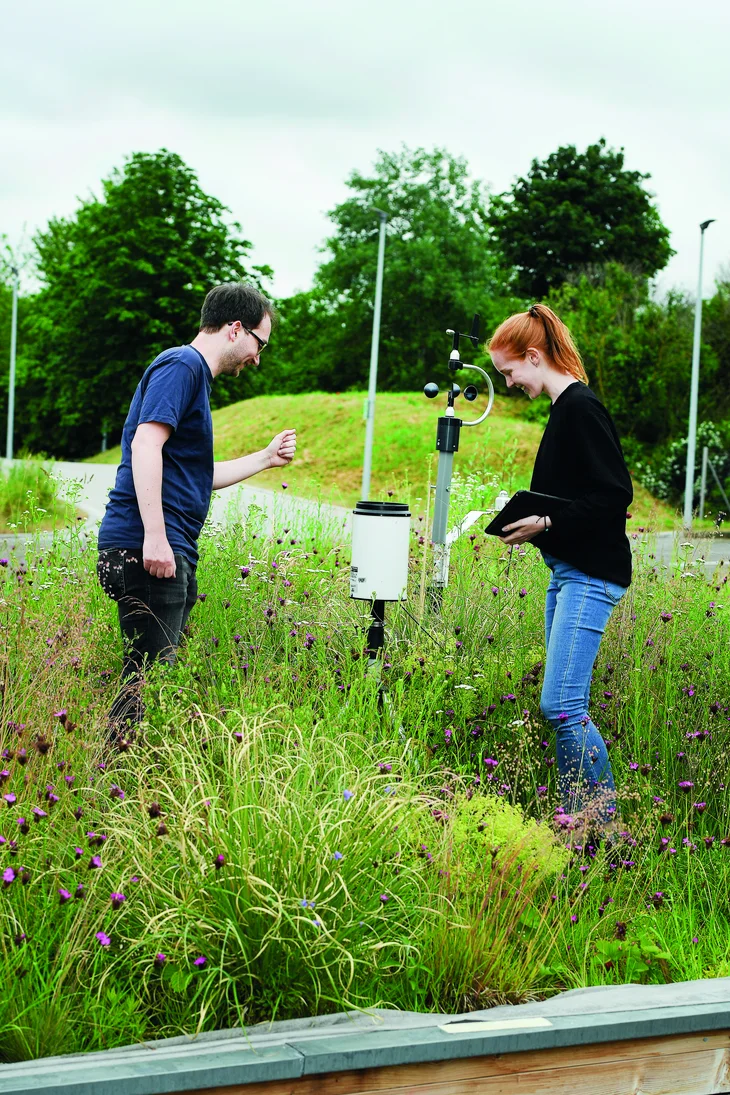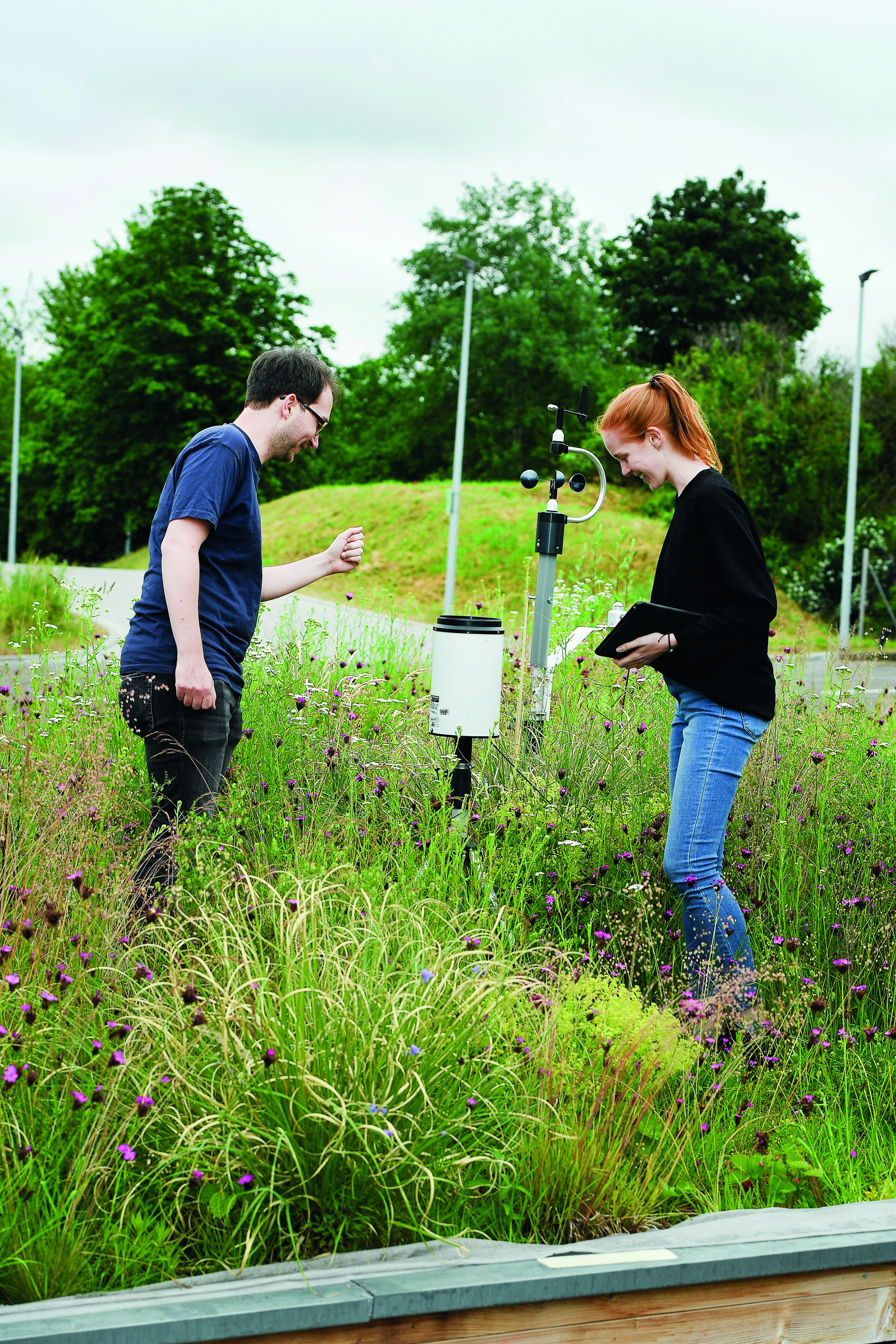Environmental Sustainability trough Interdisiciplinarity
Studying in Germany in a beautiful little town on the Rhine near Frankfurt.
International and interdisciplinary Programme on Sustainability and Environmental Protection.
Oriented towards the requirements of the labour market.
Broaden your spectrum with new knowledge from many subjects from renewable materials via sustainable business to environmental protection and ecology.
As a university of applied sciences, we work closely with industry, engineering offices and authorities and train their young professionals with practice-relevant knowledge, skills and attitudes.
You can apply if you can prove sound knowledge in three areas from the following five areas through your Bachelor's certificate.
- Mathematics,
- Physics and/or Engineering Mechanics,
- Chemistry,
- Biology and/or Ecology,
- Economics
- Abschluss:
- Master, Master of Science
- Regelstudienzeit:
- 3 Semester
- Studienmodell:
- Vollzeit
- Studienbeginn:
- Sommersemester, Wintersemester
- Leistungspunkte:
- 90
- Zulassungsbeschränkung:
- Nein
- Sprache:
- Englisch
We protect the future sustainably

Frieder Kunz
Studiengangleitung11-107
Sven Meyer
Prüfungsausschussvorsitz2-125
Bettina Kempf
Assistenz2-102
Tanja Lehr
Sekretariat2-101
Career prospects
Skilled workers are urgently needed in all environment-related occupational fields. The career prospects for environmental and sustainability experts are diverse, thanks to the interdisciplinarity and high practical component of the degree programme. After graduating from Bingen University of Applied Sciences, you can work at public authorities, in engineering offices and research institutions or in the industrial and service sector.
Operational environmental and sustainability management
One occupational field for which you qualify is corporate environmental and sustainability management. The challenge of environmental, climate protection and sustainability also affects companies and organizations to a particular extent. They need to reduce their environmental footprint and align their operations with sustainability. In corporate environmental management, you will contribute, among other things, to systematically managing emissions, the circular economy and the use of natural resources and to making companies fit for the challenges of transformation.

Technical environmental protection
Through basic training in the field of environmental technology (energy technology, emission control, circular economy, environmental chemistry, urban water management), you will be able to actively manage energy and heat transition and avoid or remove environmental pollutants from the environment. They help to sustainably reduce or avoid emissions (greenhouse gases, volatile combustion products, wastewater). You will work in interdisciplinary teams, e.g. in design or consulting. Occupational fields arise, for example, in engineering and planning offices, with water and energy suppliers as well as waste disposal companies and environmental authorities.

Environmental planning and nature conservation
With the in-depth knowledge of species in flora and fauna acquired during your studies and knowledge of species and biotope protection, urban ecology, landscape conservation, nature conservation planning, intervention regulation, EIA and nature conservation law, you will be able to carry out mapping, prepare plans and expert opinions, use geographical information systems, carry out assessments and implement concepts for measures. This results in a wide range of professional fields, e.g. in environmental planning offices, nature conservation authorities and environmental associations.

That's what we are especially proud of
Building a Sustainable Future
Rykiel, 04.12.2024Studying Environmental Sustainability at TH Bingen was an eye-opening journey. I explored the interconnectedness of ecosystems, learned strategies to combat climate change, and engaged in practical projects to develop sustainable solutions. One of the highlights was collaborating with peers from diverse backgrounds on environmental impact assessments, which showed me the power of collective action. These experiences have solidified my passion for making a tangible difference in the world, and I’m excited to apply these insights to create a greener future.
Sustainability made me Sustainable
Jerrin, 05.06.2024I have significant experience in the study of "Environmental Sustainability" through my current pursuit of an MSc in Environmental Sustainability at Technische Hochschule Bingen, Germany. During this course, I have completed modules including Life Cycle Assessment (LCA), EU Environmental Law & Politics, Fuel Cells, Climatic Change & Environmental Impacts, Restoration Ecology, International Sales with Case Studies, Renewable Materials, and Environmental Impact of Plastics.
Praxisorientiert , flexibel , interessant
Najlae, 04.06.2024Die gewählten Kurse sind aktuell und sehr gut vermittelt, weit entfernt von den üblichen theoretischen Kursen , mehrere Software und Feldausflüge, um besser zu assimilieren.
Was die administrative Seite betrifft: Alles wurde so eingerichtet, dass der Schüler über alles informiert war. Und als internationaler Student hat die Zweisprachigkeit des Personals und der Lehrer die Kommunikation sehr einfach gemacht.


